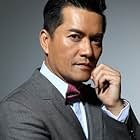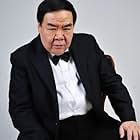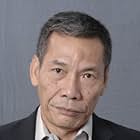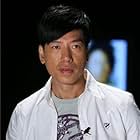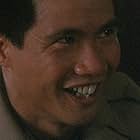Foto
Trama
Recensione in evidenza
This film is a profoundly moving exploration of the intersection between history and personal fate, set against the backdrop of post-war Hong Kong. It vividly depicts the turbulent aftermath of the Chinese Civil War in 1949, portraying the struggles of ordinary people swept up in the relentless tide of history.
The story focuses on a group of Nationalist soldiers who, after their defeat, find themselves stranded in Hong Kong. Stripped of their homeland and unable to integrate into colonial society, they drift through life, struggling to survive. Some hold steadfast to their ideals, while others are forced to compromise. The film's compassionate storytelling sheds light on their plight, reminding us that the brutality of history is not confined to grand events but is deeply embedded in the lives of those forgotten by history.
Post-war Hong Kong becomes a battleground of competing powers. The Communist Party quietly expands its influence, the Nationalists make desperate attempts to retain their presence, and the British colonial government prioritizes its own interests, acting as a distant observer. These intertwined forces leave little room for personal agency, as the film poignantly illustrates through its characters' struggles. Hong Kong is not merely a setting but a microcosm of the political and social upheaval of the time.
One of the most haunting moments in the film is the story of a 99-year-old man who dies after witnessing the commercialization and distortion of Wong Fei-hung, his lifelong hero. For him, Wong represents martial virtue and unyielding spirit, but the film industry's shallow portrayal reduces the icon to a caricature. Overcome with despair and frustration, the man collapses and dies-a tragic protest against the erasure of cultural authenticity. His death symbolizes not just personal heartbreak but also the generational loss of values and ideals.
This poignant moment critiques the commodification of culture and raises profound questions about preserving historical and cultural integrity in a world increasingly driven by commercial interests. It asks whether we can protect our past when it is reshaped by modern consumption.
Ultimately, this film challenges viewers to reflect on whether individuals can truly shape their destinies amid the overwhelming forces of history. The soldiers' displacement, the citizens' survival struggles, and the old man's lonely stand for his beliefs highlight the immense tension of the era. History's cruelty and poetry often find their truest expression in the lives of ordinary people.
This film is not just a tribute to the past but also a reminder to preserve and honor these stories. It is a meditation on humanity, belief, and fate, encouraging us to reflect on the enduring struggle to protect cultural and personal integrity in the face of time's relentless tide.
The story focuses on a group of Nationalist soldiers who, after their defeat, find themselves stranded in Hong Kong. Stripped of their homeland and unable to integrate into colonial society, they drift through life, struggling to survive. Some hold steadfast to their ideals, while others are forced to compromise. The film's compassionate storytelling sheds light on their plight, reminding us that the brutality of history is not confined to grand events but is deeply embedded in the lives of those forgotten by history.
Post-war Hong Kong becomes a battleground of competing powers. The Communist Party quietly expands its influence, the Nationalists make desperate attempts to retain their presence, and the British colonial government prioritizes its own interests, acting as a distant observer. These intertwined forces leave little room for personal agency, as the film poignantly illustrates through its characters' struggles. Hong Kong is not merely a setting but a microcosm of the political and social upheaval of the time.
One of the most haunting moments in the film is the story of a 99-year-old man who dies after witnessing the commercialization and distortion of Wong Fei-hung, his lifelong hero. For him, Wong represents martial virtue and unyielding spirit, but the film industry's shallow portrayal reduces the icon to a caricature. Overcome with despair and frustration, the man collapses and dies-a tragic protest against the erasure of cultural authenticity. His death symbolizes not just personal heartbreak but also the generational loss of values and ideals.
This poignant moment critiques the commodification of culture and raises profound questions about preserving historical and cultural integrity in a world increasingly driven by commercial interests. It asks whether we can protect our past when it is reshaped by modern consumption.
Ultimately, this film challenges viewers to reflect on whether individuals can truly shape their destinies amid the overwhelming forces of history. The soldiers' displacement, the citizens' survival struggles, and the old man's lonely stand for his beliefs highlight the immense tension of the era. History's cruelty and poetry often find their truest expression in the lives of ordinary people.
This film is not just a tribute to the past but also a reminder to preserve and honor these stories. It is a meditation on humanity, belief, and fate, encouraging us to reflect on the enduring struggle to protect cultural and personal integrity in the face of time's relentless tide.
- Media-Time
- 22 nov 2024
- Permalink
I più visti
Accedi per valutare e creare un elenco di titoli salvati per ottenere consigli personalizzati
Dettagli
- Data di uscita
- Paese di origine
- Lingua
- Celebre anche come
- Hero of Hong Kong 1949
- Azienda produttrice
- Vedi altri crediti dell’azienda su IMDbPro
Contribuisci a questa pagina
Suggerisci una modifica o aggiungi i contenuti mancanti

Divario superiore
What is the English language plot outline for Yi jiu si jiu: Jie hou ying xiong zhuan (1993)?
Rispondi

